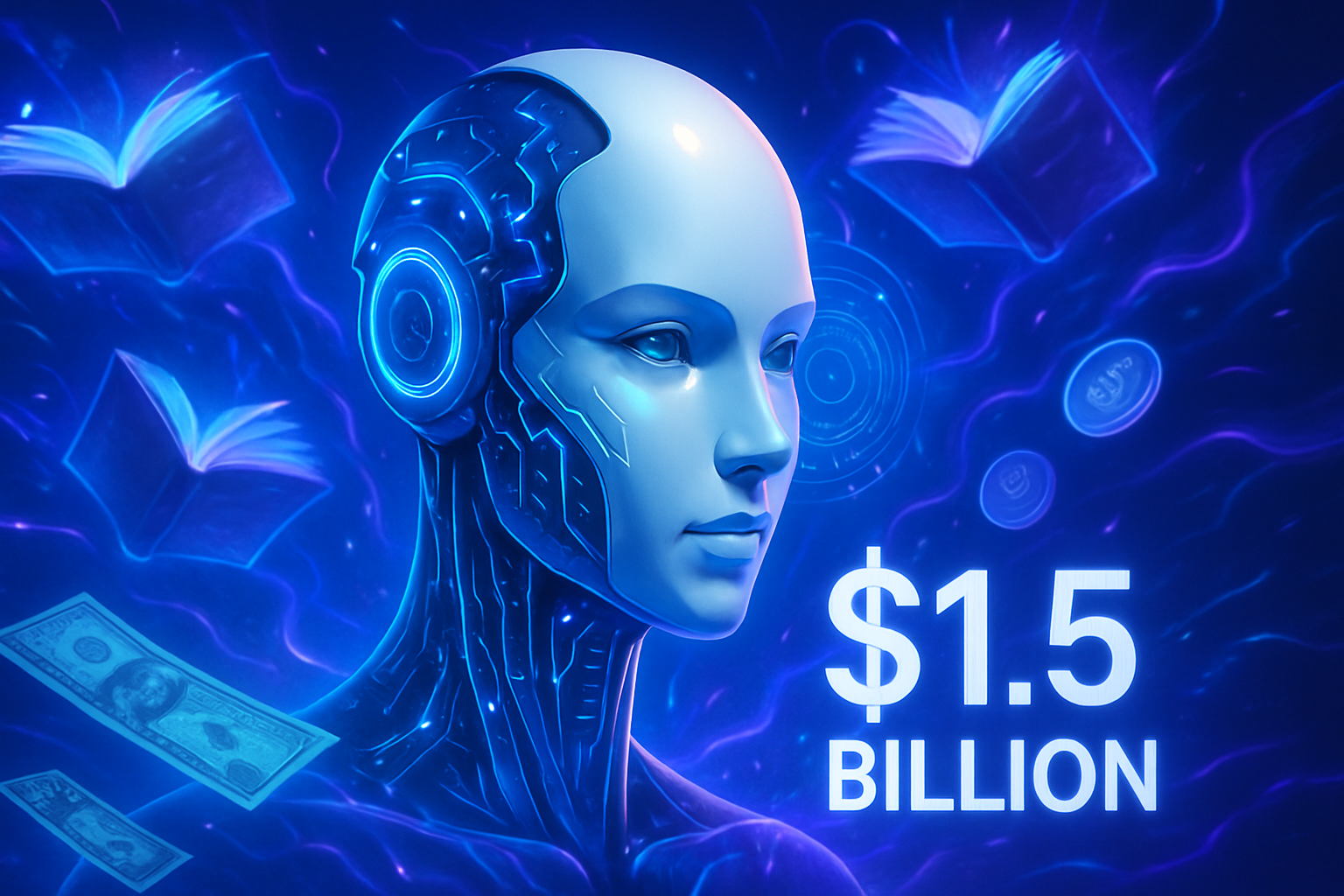The Anthropic case illustrates the growing tensions between AI and copyright law. This technology company recently agreed to pay $1.5 billion to settle a major lawsuit concerning the illegal use of books. The agreement, with a judgment expected as early as Monday, represents a historic step in the fight for the rights of literary creators. A third party involved in this controversy, a group of authors pointed to the widespread piracy their works have fallen victim to. This settlement could set new standards in response to the ethical challenges posed by artificial intelligence technologies.
Historic Agreement by Anthropic
The artificial intelligence company Anthropic has recently agreed to pay $1.5 billion to settle a class-action lawsuit. This decision follows accusations from book authors who claim that the company used pirated copies of their works to train its chatbot. This settlement could represent a pivotal turning point in the disputes between AI companies and creative professionals.
Background and Accusations
The group of authors, initially represented by novelist Andrea Bartz and non-fiction writers Charles Graeber and Kirk Wallace Johnson, filed a lawsuit the previous year. They allege that Anthropic downloaded millions of books, including from piracy sites, to feed its chatbot Claude. A federal judge ruled that Anthropic had acquired these books illegally.
Impact of the Judgment
The judgment rendered in June 2023 distinguished two aspects: training chatbots using works protected by copyright is not illegal, but obtaining these books through piracy is. Experts warn that if Anthropic had not settled this matter, financial losses could have amounted to several billion dollars. The verdict posed a significant risk to the company’s future, even potentially jeopardizing its existence.
Details of the Settlement
The proposed settlement involves the payment of approximately $3,000 per book for the 500,000 titles involved. This amount exceeds the damages initially estimated by the Authors Guild, which anticipated compensation of at least $750 per work. The difference is explained by the reduction in the number of affected works after filtering out duplicates and works without copyright.
Reactions to the Settlement
The executive director of the Authors Guild, Mary Rasenberger, hailed this agreement as an excellent outcome for authors, publishers, and rights holders. This settlement sends a strong message to the AI industry, highlighting the severe consequences of literary work piracy for training artificial intelligences.
Importance of Books for AI
Books are crucial data sources, containing trillions of structured words necessary for the creation of language models. These models, like those from Anthropic and OpenAI, rely on a vast collection of works to provide coherent and intelligent discourse. The ramifications of this agreement could influence how AI companies interact with copyright and intellectual property rights.
Future Perspectives
A new trial could potentially redefine the contours of copyright law in the digital age. The trial scheduled for this Monday could determine the approval of this agreement, a crucial element for the competitive landscape of AI. The heightened awareness of copyright issues may prompt other authors and creators to protect their works against similar practices.
Related Links
Similar cases, such as Warner Bros Discovery suing an AI leader for copyright infringement, also raise significant questions in the AI space. For more information, check out this article on Warner Bros Discovery.
Concerns surrounding the ambitions of some companies, such as Whitehall’s desire to cut costs through AI, also merit examination. You can read more about this topic here: Whitehall’s ambition.
Finally, warnings about an arms race in artificial intelligence, particularly relating to Russia, lead to reflections on regulating these technologies. For more information, see this related article: arms race in AI.
Cybersecurity threats, especially through the use of AI by Russia, also raise concerns. Check out this article for further details: Russian cyberattacks.
Authors are calling on publishers to restrict the use of AI, reflecting a growing awareness of the issues surrounding the protection of intellectual property. More information is available here: authors’ request.
FAQ on the Anthropic Lawsuit Settlement Regarding Book Piracy
What is the Anthropic settlement regarding book piracy?
The Anthropic settlement involves a payment of $1.5 billion to end a class action lawsuit filed by authors who accuse the company of illegally using their works to train its chatbot.
Why is this settlement so important for authors?
This settlement is significant as it represents one of the first times an AI company is required to pay substantial damages for copyright violations, thereby reinforcing the rights of content creators.
What impact did the judgment last June have on this settlement?
The June judgment established that while training AI on protected books may not be illegal, Anthropic had acquired millions of books via piracy sites. This led to a settlement to avoid considerable financial losses during the upcoming trial.
How many authors are involved in this settlement?
The settlement involves approximately 500,000 books and was initiated by a group of authors, including novelists and non-fiction writers representing a broad range of content creators.
What amounts are expected for authors under this settlement?
Authors will receive approximately $3,000 for each work involved in the settlement, an increase from the initial expectations of $750, reflecting the recognition of the importance of their copyright rights.
What role does Judge William Alsup play in this case?
Judge William Alsup is responsible for reviewing the terms of the settlement and determining their approval. He also played a key role in the preliminary judgment that uncovered Anthropic’s piracy activities.
How could this settlement affect the future of the AI industry?
This settlement could set a precedent for other AI companies, encouraging them to adopt more ethical practices regarding copyright and to respect the intellectual property of authors and artists.
What message does the settlement send to the AI industry?
The settlement sends a clear message that copyright violations in the context of AI training can have serious financial consequences for companies, thereby encouraging respect for creators’ rights.






